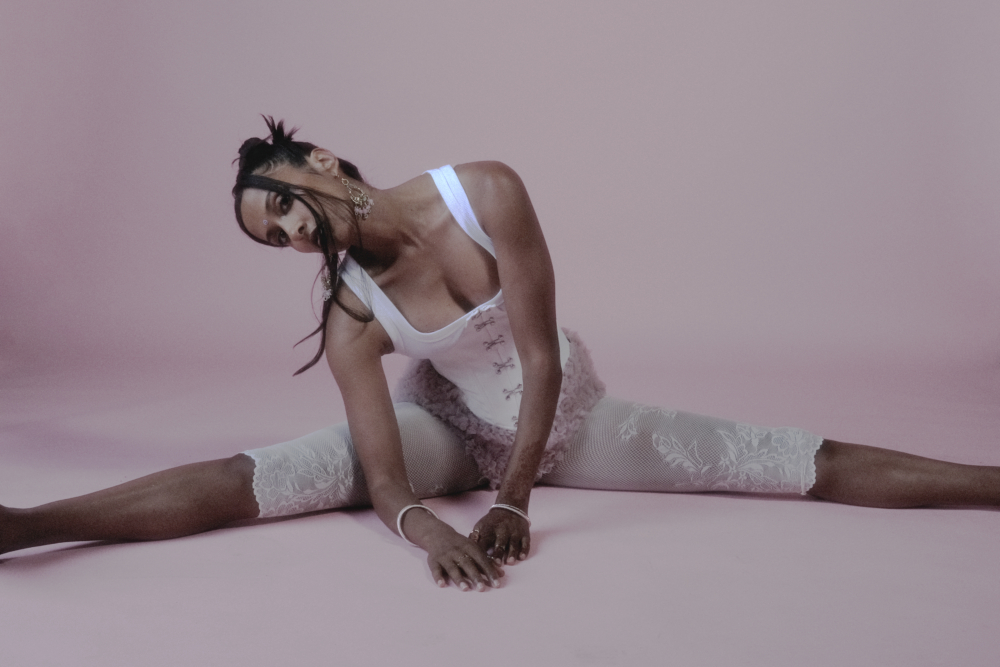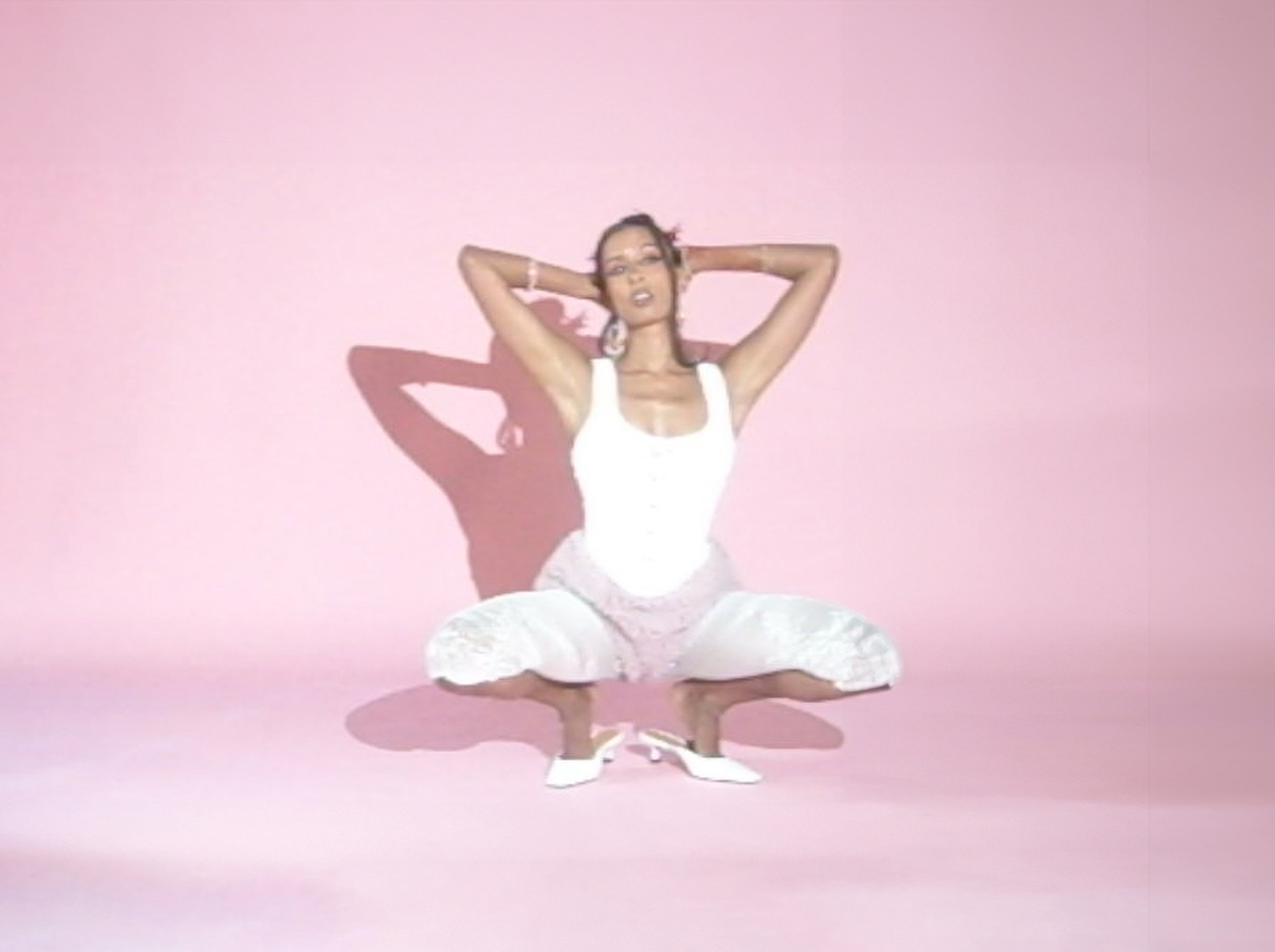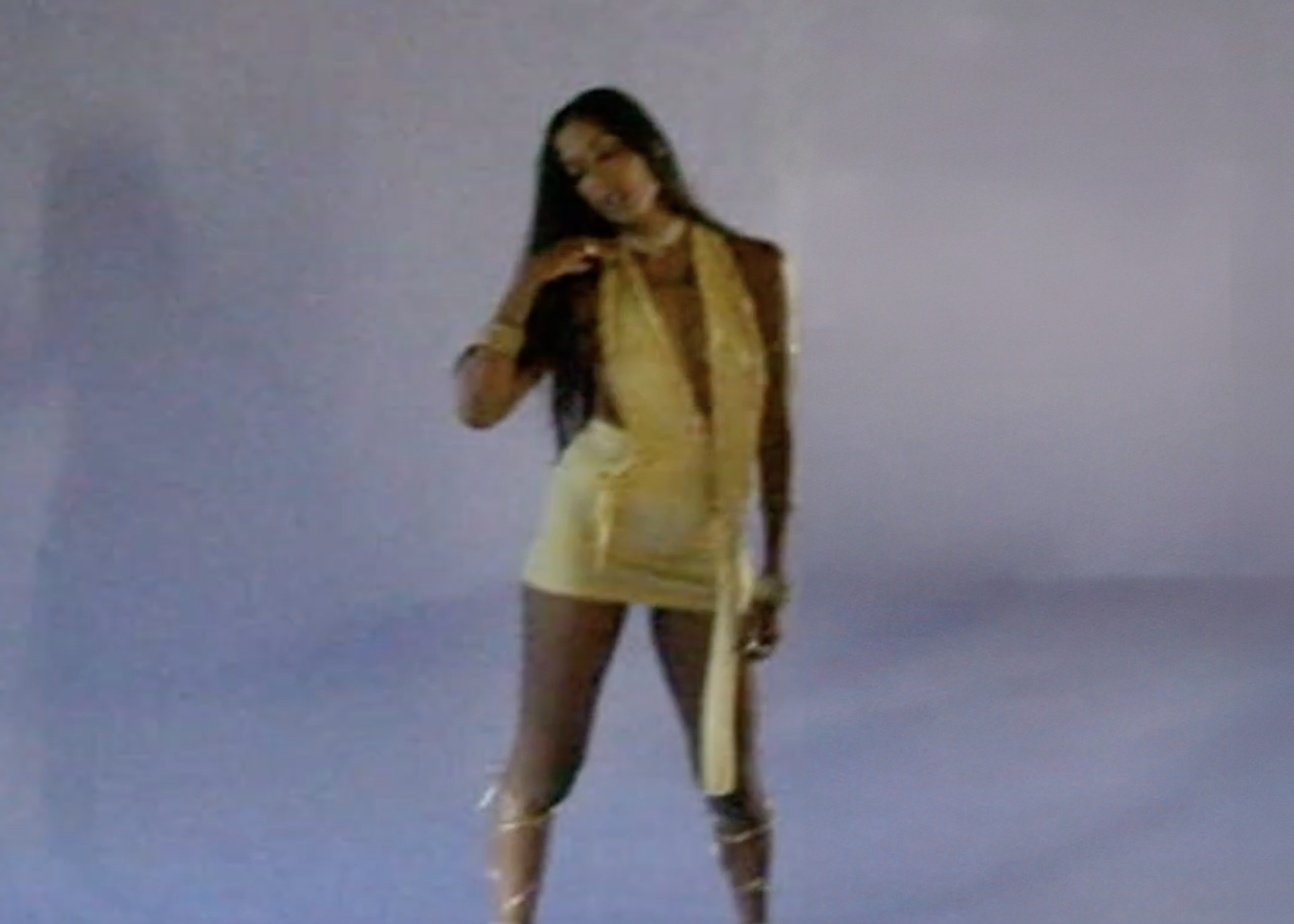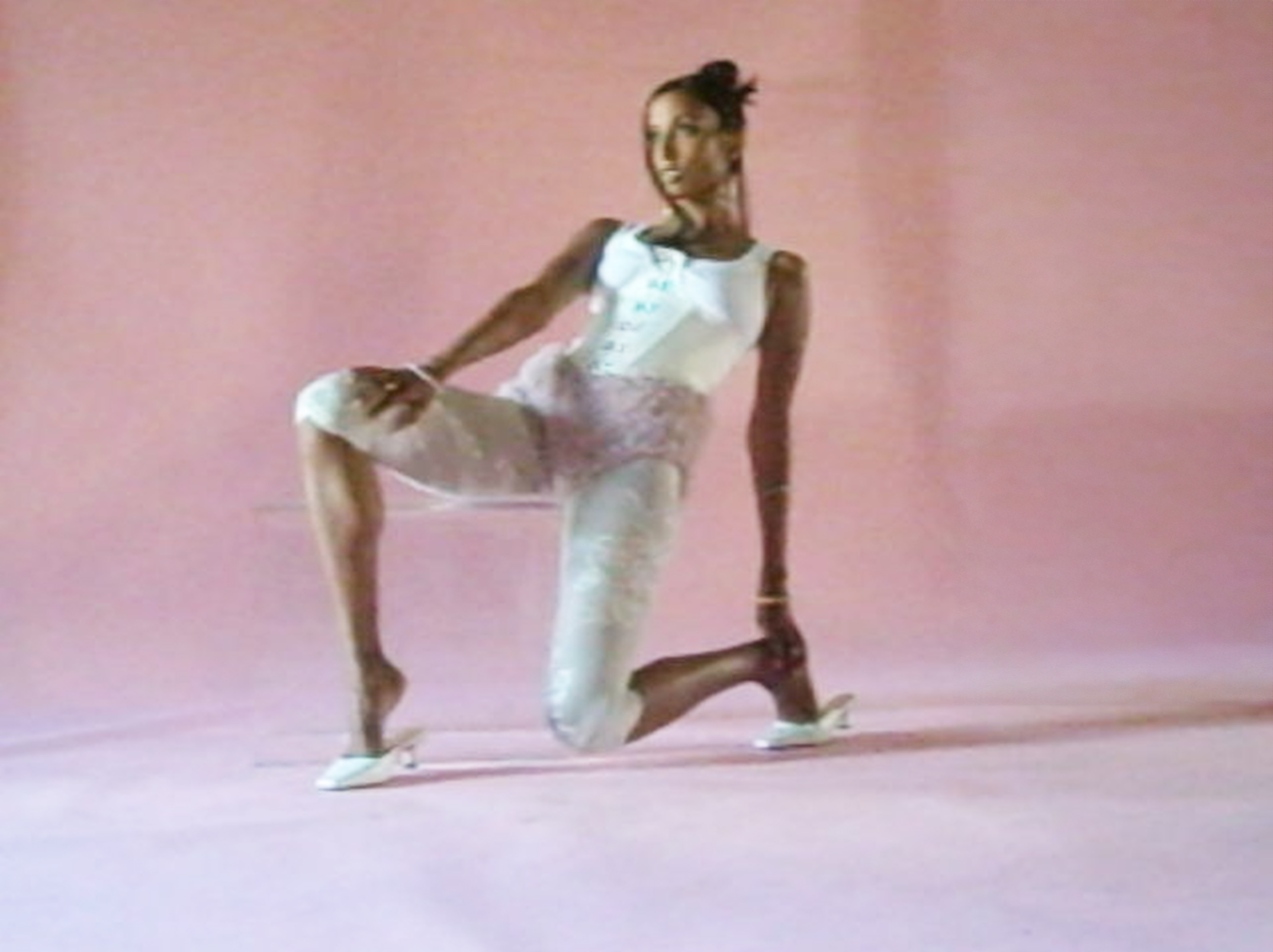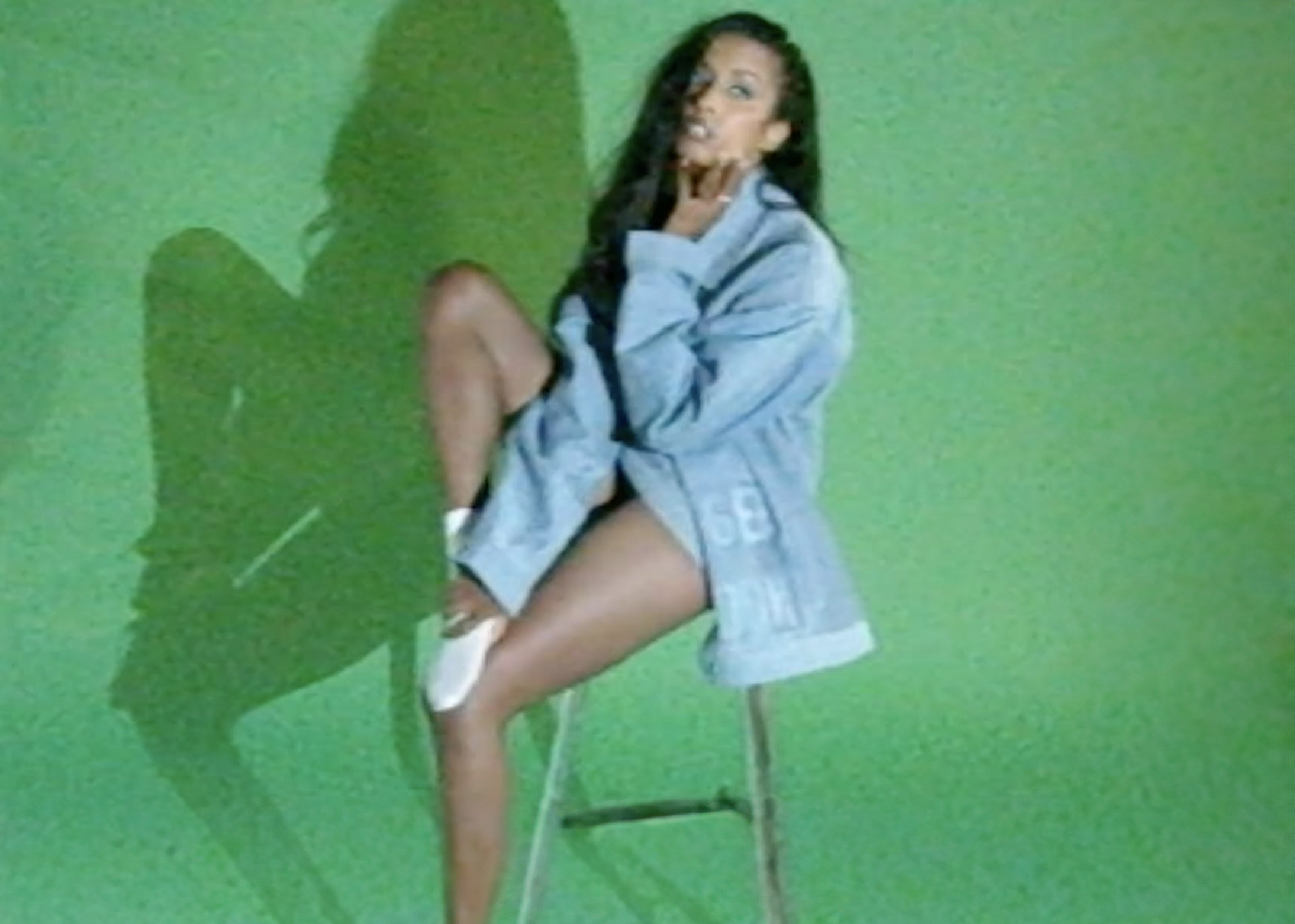Anjulie walks up to the steps of our third-storey photography studio where we’ll soon be shooting her cover story, suitcase dutifully rolling behind her. She dons a bohemian shawl as she saunters towards the steps, her head shrouded in a softly woven sun hat. It’s incognito, the sort of attire a pop star wears on a quick jaunt for coffee in Calabasas. Perhaps it’s the way the brim casts just the right amount of shadow onto her face, or the way her voice lilts so politely, but Anjulie is surprisingly demure for someone who has at times topped the playlist and airwaves of Canadian radio over the past decade.
We walk upstairs and exchange pleasantries before settling on the looks for the shoot. “I trust your vision” she remarks, as we bandy ideas back and forth about the direction of our editorial. A team of stylists and makeup artists crowd around her as she steps into frame—a swipe of lipstick here, a loose shoe strap there—before the music queues and the shutter clicks. Anjulie shifts here—as the shoot begins, her presence sharpens, commanding the frame with an assured confidence. Her body sways and contorts to the music as the camera flashes, cutting shapes with her limbs as she goes. Her movements are methodical and measured, but with an ease that suggests she’s a seasoned professional; one that knows exactly how she wants to present herself, and in this moment something becomes very clear: Anjulie was born to do this.
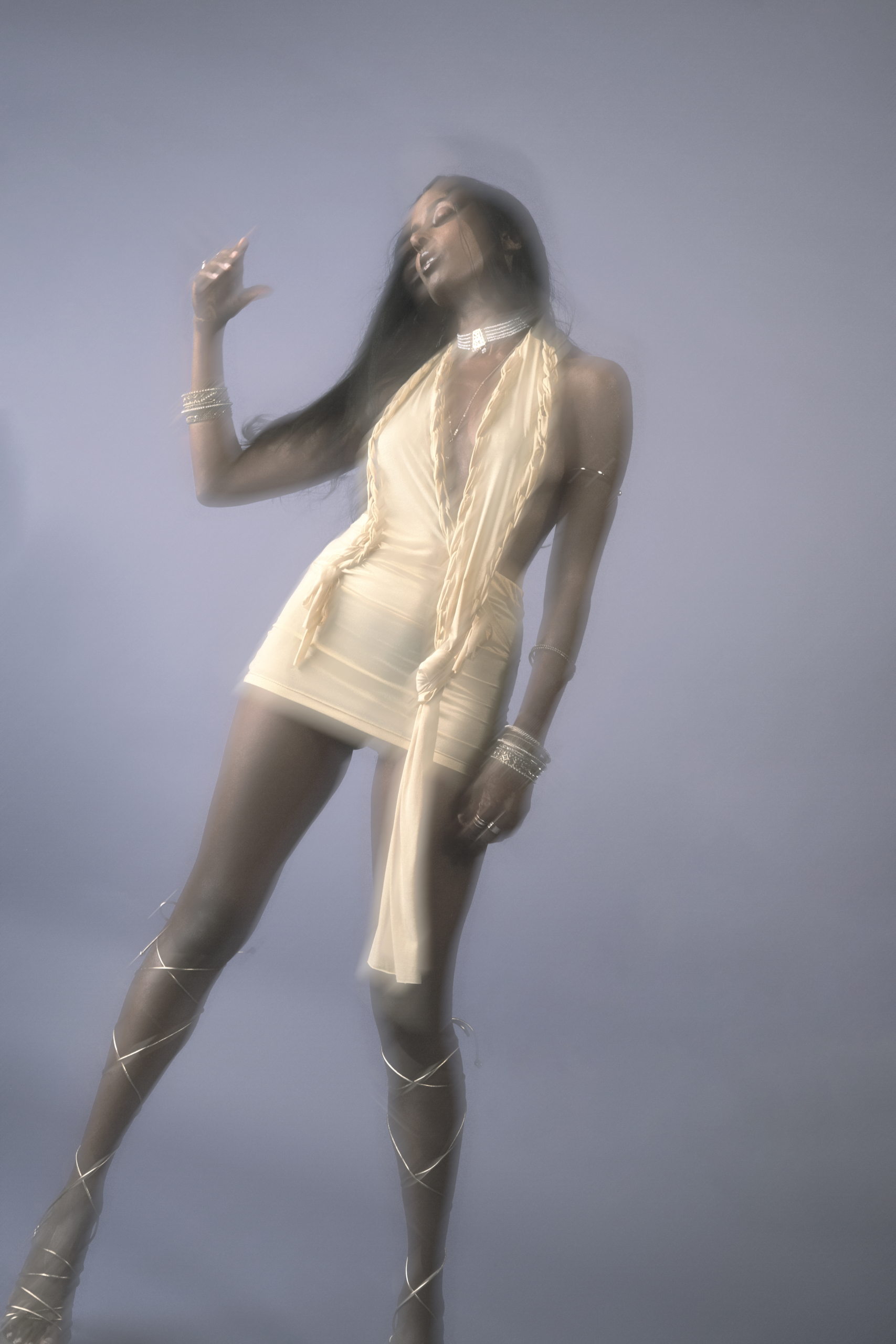
It’s no surprise that the singer-songwriter is a natural in front of the camera. As a Canadian household name with a string of Top 40 hits like “Boom” “Brand New Bitch” and “You & I,” her impact extends well beyond her own chart-toppers— penning hits for the likes of Kelly Clarkson, Nicki Minaj, and Nelly Furtado (snagging a recent co-write on Furtado’s latest gold single), and collaborating with industry giants such as Benny Benassi, Diplo, and Zedd.
Later in the shoot, while readying our third look of the day, Jade Thirlwall, the enigmatic breakout star of Little Mix’s new single, comes on. Anjulie’s eyes widen, a subtle spark of recognition crossing her face. “I love this song!” The track, a pulsating hyperpop exploration of the seductive yet destructive nature of fame and the music industry, is a favourite of the singer-songwriter’s. It’s not hard to see why. The lyrics poignantly speak to the push and pull of an industry that offers both adulation and alienation. It’s a narrative that Anjulie knows all too well as an industry veteran, and for a brief moment, her expression shifts. She asks to play it again as we shoot; and as the beat pulses Anjulie begins to perform. There’s a freedom to her movements here. She writhes on the floor flipping her hair and contorting, as if the song has channelled a conduit to her most innate artistic sensibilities.
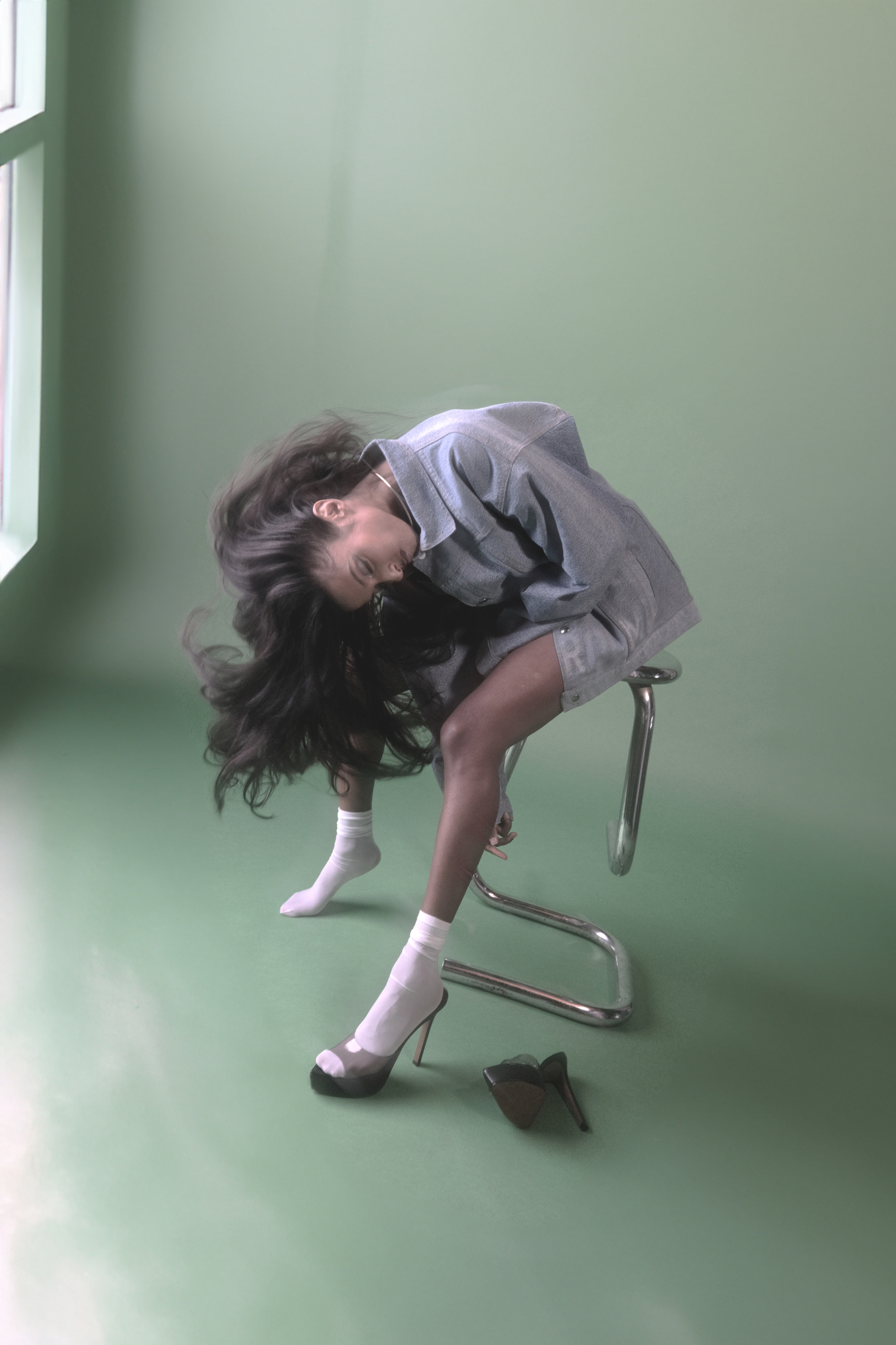
This raw artistic intensity is no doubt a result of the artist’s continued evolution, and the new chapter of her artistry she stands at the precipice of currently—a journey that has seen her move from the infectious hooks of her pop and EDM roots to a more introspective, experimental sound. Where once her music was characterized by the pulsating energy of dance floors and radio hits, today’s Anjulie is exploring new territory, blending the warmth of singer-songwriter sensibilities with the complexity of layered, atmospheric production. Her latest releases—tracks like “Chai and Sunshine,” “Therapy,” “Hard to Love You,” “Things I Used to Know,” and “The Machine”—mark a departure from the polished sheen of mainstream pop, embracing instead a sound that is as much about mood, texture, and cultural influence as it is about melody.
We caught up with Anjulie to speak more in depth about this evolution, her journey as an artist, her illustrious career, her thoughts on the Canadian music scene and her new album.
Reflecting on your growth as an artist, what would you say has been the most transformative moment in your career so far?
I remember the first time I wrote my first song on guitar that felt like a REAL song. I was about 19, living at Bloor and Bathurst in a tiny little apartment above a nightclub called Insomnia back then, and it felt like the sky opened up. It was better than anything I’d ever experienced, and it had nothing to do with anyone hearing it or liking it. It was just about my own ability to make something out of nothing that I was proud of. It changed everything for me.
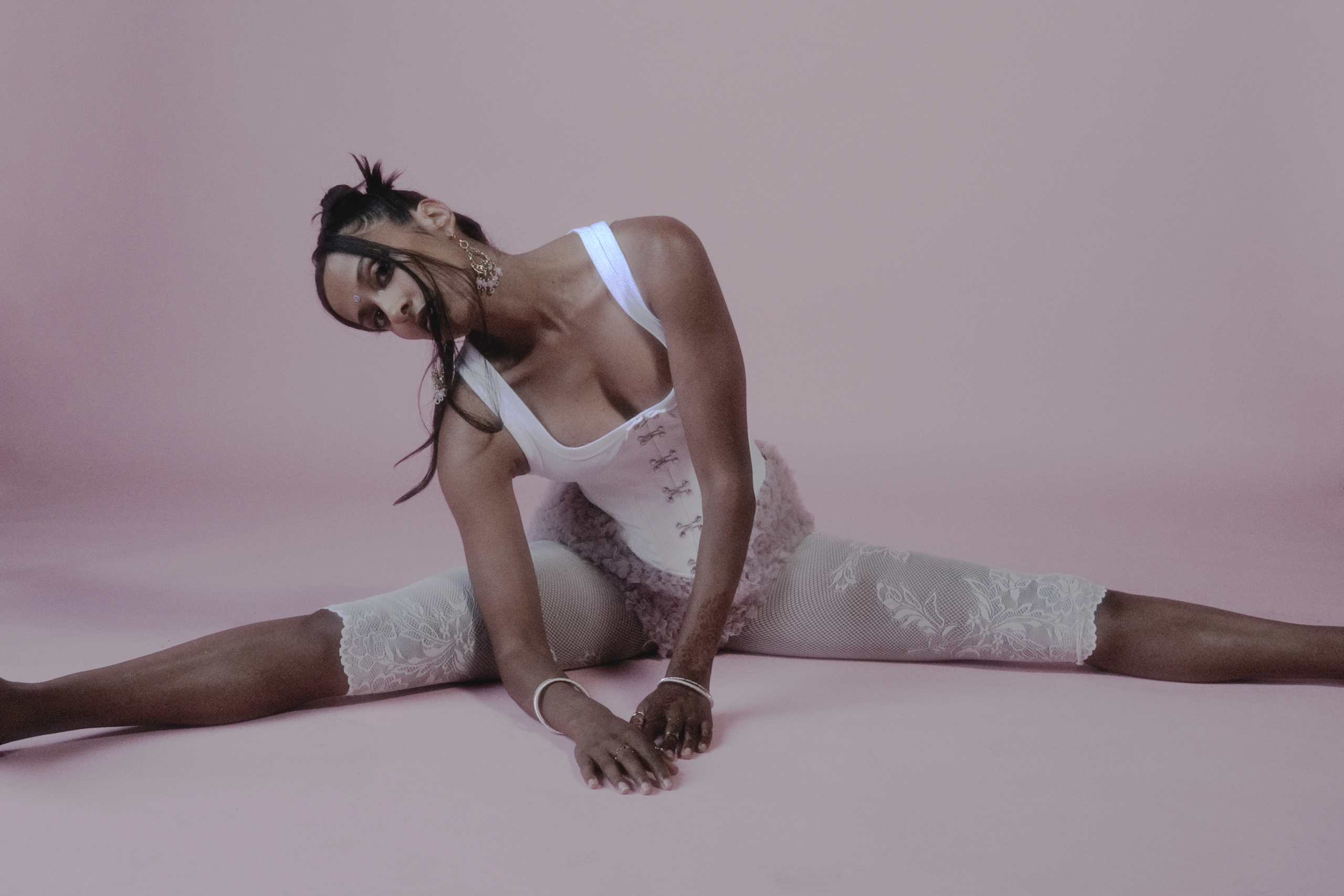
Your music has evolved significantly from your early hits like “Boom” and “Brand New Bitch.” How do you view your journey from then to now as a Canadian pop artist?
I’ve gone through so many genres and styles in my career. I think a lot of people have different eras, but I can go through multiple in the span of a week! Instead of trying to stay consistent, I’ve just tried to stay authentic to my music. I put out a record called “Stand Behind The Music” after “Brand New Bitch,” and everyone thought it was such a complete genre shift, but I always felt like people can handle a multifaceted artist!
What role has the Canadian music scene played in shaping your career and sound? How do you see yourself fitting into, or even redefining, that landscape today?
Canadian music has been incredibly influential for me as an artist. Nelly Furtado, Alanis Morissette, Celine Dion, and Shania Twain influenced the writing and passion I developed for song crafting. Today, I think there’s a lot more space for an artist like me. I’ve been embracing my culture more than ever and incorporating that into my music. When I first came up, I was told I had to make either “white music” or “urban music.” I still don’t know what that means. I’m glad globalization has finally impacted the music industry. The K-pop, LATIN AFRO and PUNJABI phenomenons have been so inspiring to watch, and I feel like we’re on the cusp of an EVEN BIGGER South Asian music explosion. I’m here for it all.
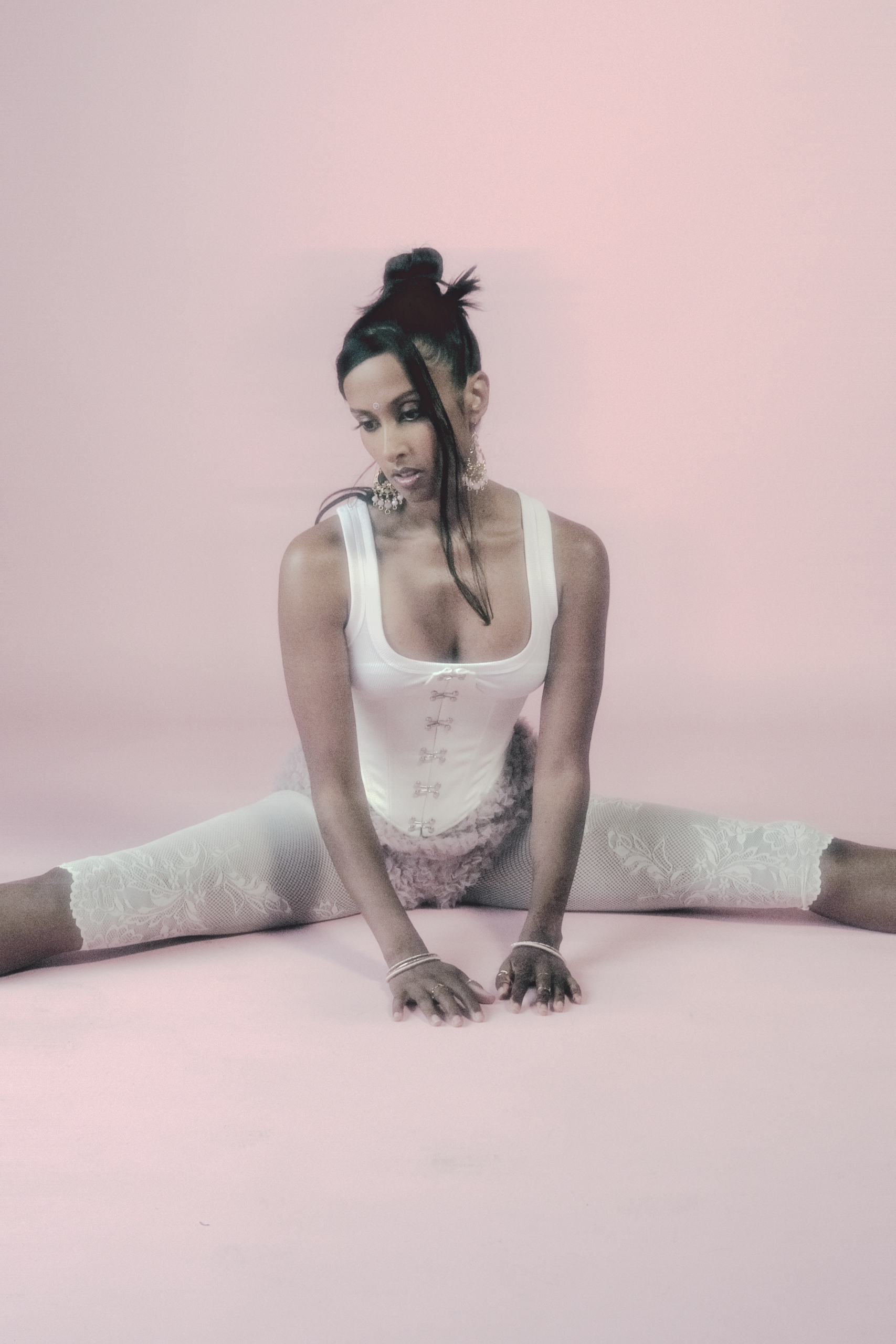
As someone who is now independent, what are the most liberating and the most challenging aspects of managing your career on your own terms? Do you see the changing music landscape as being more or less favourable to independent artists now?
The most liberating and challenging thing about being indie is that if you mess something up, it’s on you and nobody else. I’m not a fan of the feeling of helplessness, so being entrepreneurial allows me the freedom to sink or swim based on my own efforts. In the music industry right now, gatekeepers are losing their chokehold. There was a time, not too long ago, when four men in America decided what everyone listened to. Some of your favorite artists might not be your favorite artists if that wasn’t the case! Now everything is wide open. If the music industry discards you, you still have access to billions of people online. There is no one between you and the audience. That’s the exciting part for all artists right now! The pain point is that there are about a million songs released to Spotify per week, so cutting through the noise is harder than ever.
You’ve worked with huge names like Zedd, Nicki Minaj, Benny Benassi, Diplo, and more recently Nelly Furtado and Dom Dolla, to name a few. Can you share a memorable story or lesson learned from collaborating with these industry heavyweights?
I learned really early on in my career that being a songwriter is being of service. When I’m writing for an artist, big or small, my sole purpose is to try and help them express whatever it is they’re trying to say. If they’re a younger artist and they haven’t figured that out yet, I’ll just ask a million questions about what they’re thinking about and what they’re struggling with, what their relationships are like, and what their dreams are. Everyone has something to say; it’s about finding their own unique way of saying it.
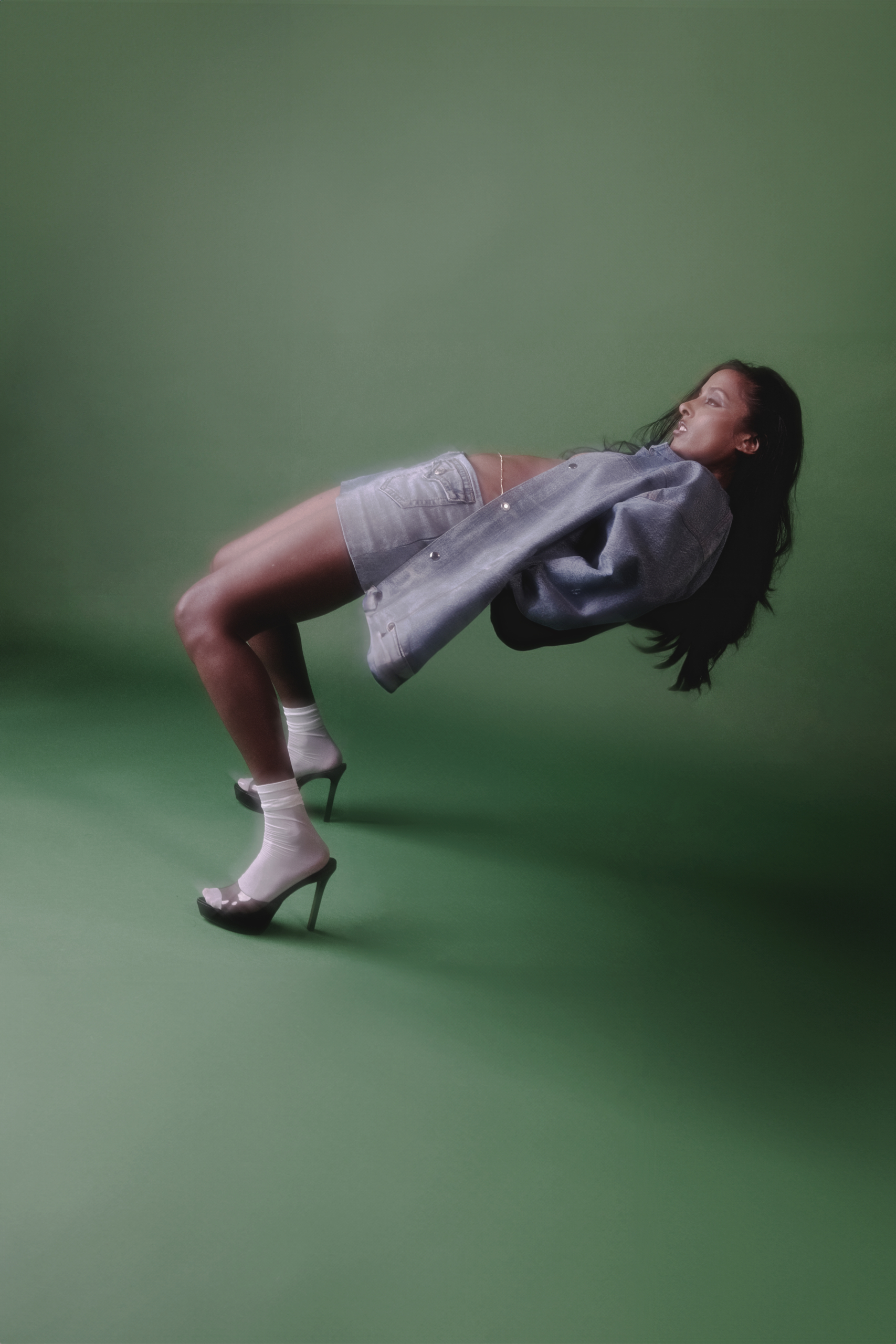
Can you tease us about your upcoming album? What are the key themes, sounds, or narratives that you’re exploring?
I’m making a multi-genre album that explores self-care and healing. I love to make bops, but I’m coming from the perspective of my lived experience, which is equal parts messy and sophisticated. I have a single that just came out called “Therapy,” and that’s what music has really been for me my whole life—a way for me to deeply know and understand myself. I’m also very inspired by the tribe I’ve been finding on social media, and I think of them when I write as well. Some of their comments even inspire my lyrics.
Your single “Holy Water” with Natalia Lafourcade and Phyno is a unique blend of languages and sounds. How did this collaboration come about, and what do you hope listeners take away from it?
I sent the song to Natalia’s manager, and she loved it, so I went to Mexico City and collaborated with her on it. It was a beautiful experience. She’s one of the most talented artists I’ve ever worked with. She plays every instrument, has an ear for production, and writes melodies as if she is channeling something outside of herself. Phyno and I had talked about collaborating in the past, and when I had the track completed, he hopped on the bridge. My co-producer on the track is South Korean, so that song ended up spanning multiple continents—from India, Mexico, South Korea, and Nigeria to Canada.
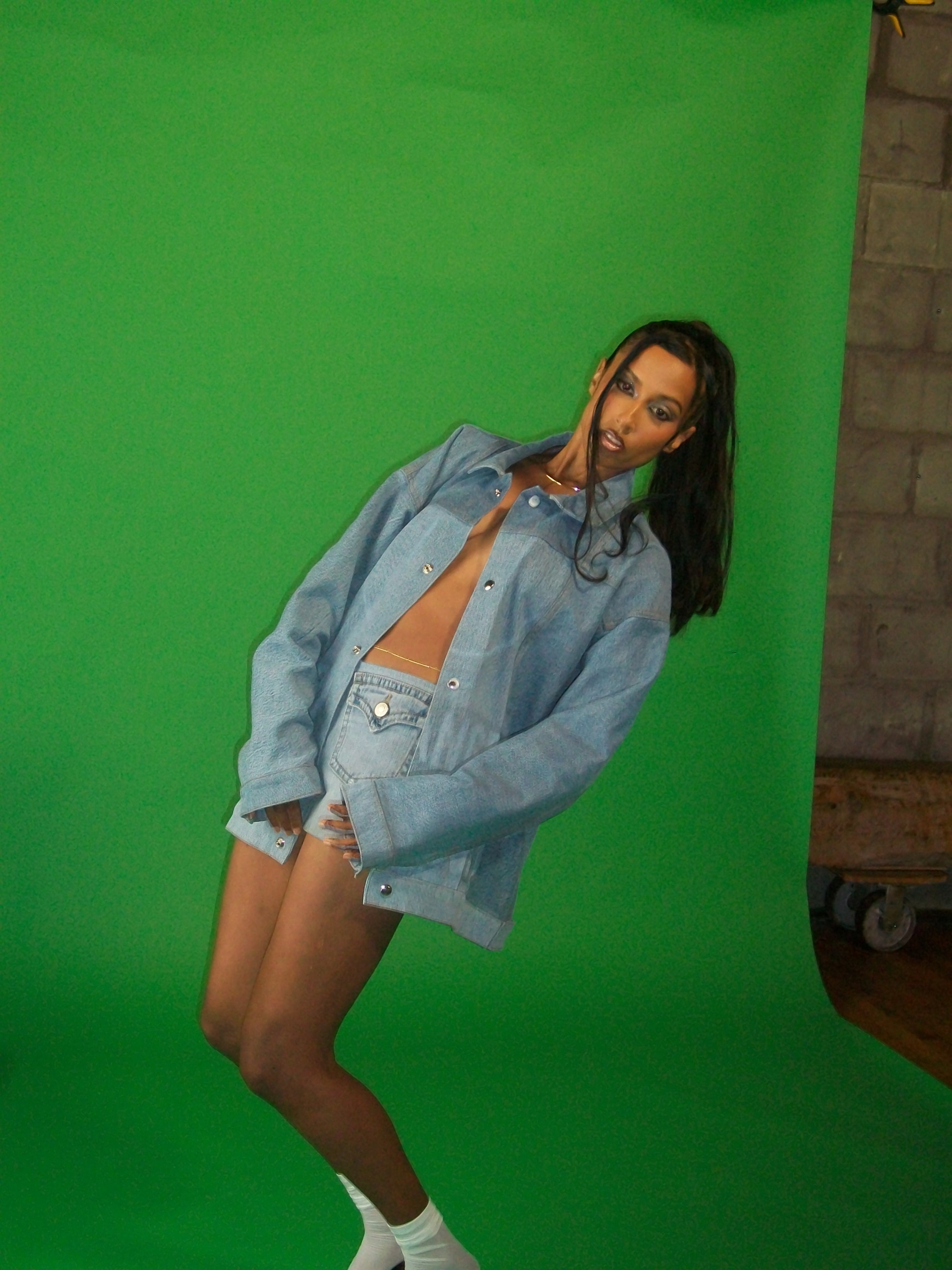
Fashion seems integral to your artistic identity. How do you see fashion and music intersecting in your work, and what are some of your biggest fashion influences?
I’ve been feeling very playful with my fashion lately. I’m not taking it too seriously and just having fun with colour and texture and culture. I’m influenced a lot by my talented friends Natasha Thasan, Lokre, and my choreographer, videographer, and sometimes stylist Alex Pollard. I also have a group chat with my family where I send them outfit options, and they weigh in. I started dipping my toe in and working with some professional stylists lately, which has been tons of fun. I feel like a chameleon with my songwriting, and the same goes for my fashion.
You’ve taken on diverse projects, from music to animation with “Earth Baby.” What drives you to explore different creative mediums, and how do they inform each other?
I have a very hard time functioning for too long when I’m not trying to sort out some kind of creative puzzle. Being in flow states is like fuel for me. I started making comics and drawing during the pandemic, and I came up with this little character on my iPad named “Earth Baby,” and he inspired an entire animated musical about a young personified Earth desperately trying to get the approval of humans. It was a real passion project.
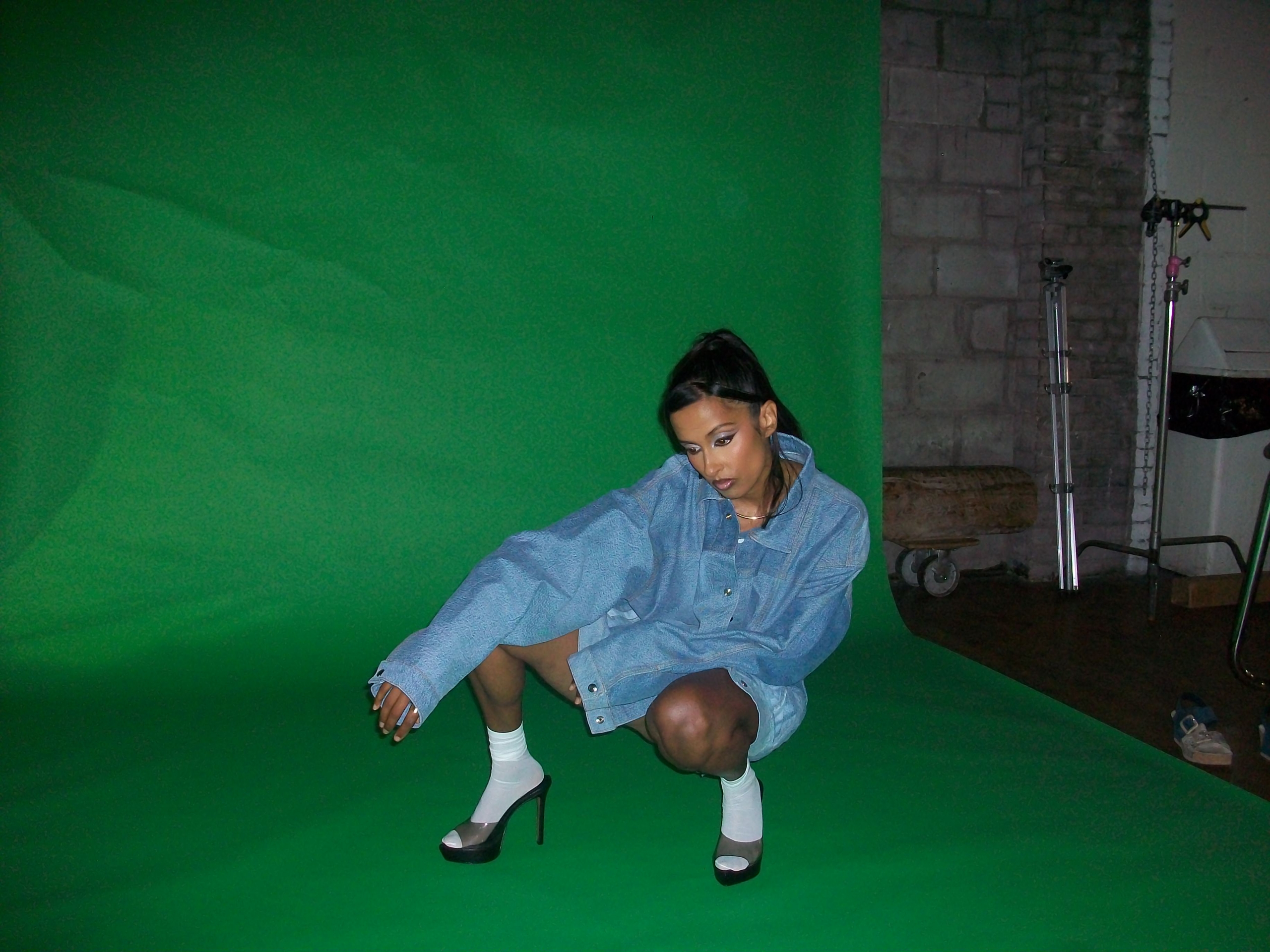
Looking back at your earlier work, what do you feel most proud of, and is there anything you would approach differently now?
I don’t have a particular moment that I’m the most proud of, but in general, I think staying in my authenticity has kept me really sane. I didn’t get too caught up in doing what other people wanted me to do. Or, let me take that back, if I did, I would course correct pretty quickly. One theme of my career has been not being able to fit into a box. I write songs and sing and dress in a multitude of ways, so when I look back at, say, the images or songs or music videos, it’s like a tapestry of all the different versions of me, and I can’t wait to discover some more.
As a songwriter, you often balance deeply personal themes with broader appeal. What’s your approach to writing songs that resonate universally while staying true to your voice?
It’s always a dance. Sometimes when I’m writing, I’ll catch myself trying to make something relatable as opposed to just making it real. The latter is always the way I’ve connected to music, and that’s how I hope people connect to mine. I wrote a song called “In the Quiet” about my Indo-Guyanese ancestry, which is obviously quite niche, and the comments I got on that song were some of the most diverse. People from all walks of life were interested in that story which has been left out of history books. From specificity comes universality.
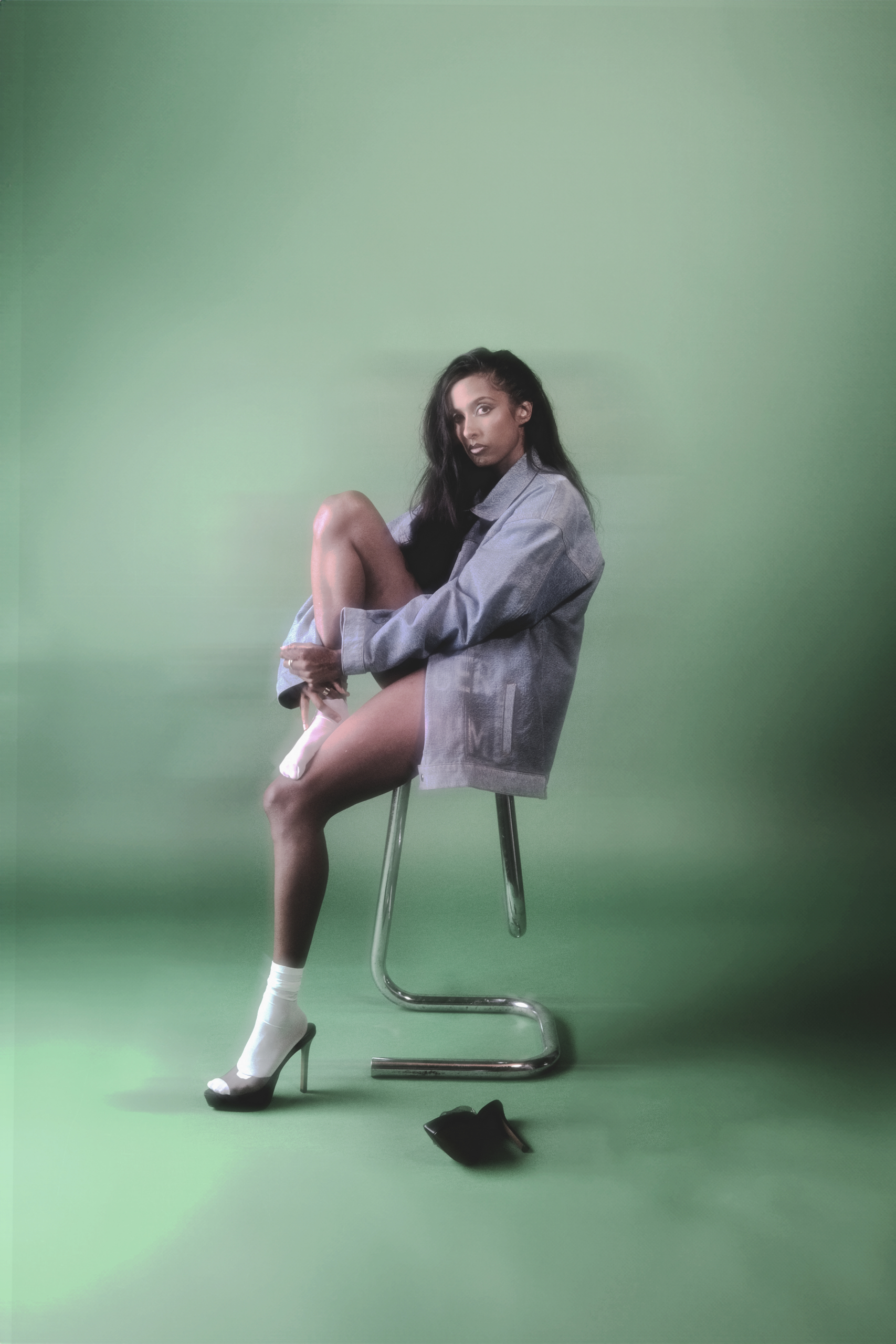
The Canadian pop scene has been gaining global recognition over the past 10 years, with many artists breaking into the international market. What makes Canadian pop distinct in your eyes? Are there any local artists or movements you feel particularly connected to or inspired by?
I think Canadians have a unique perspective because they’re in close proximity to hyper-capitalism, but they also can see it with some objectivity. I think that’s where the vulnerability comes from instead of the bravado. I love both in music, but that vulnerability really cuts deep. In terms of up-and-coming Canadian artists that I love, how much time do you have? Yanchan Produced, Lokre, Qimora, Milano, Earth 2 Tiffany, Annabel Oreste, Lu Kala, Priyanka, Omega Mighty, Haviah Mighty, Tia Wood… just to name a few!
You’ve been vocal about the need for more inclusivity in the music industry. From your perspective, what tangible changes need to happen for that vision to become reality?
Honestly, after everything that’s been going on with Diddy, I just think the entire music industry needs a makeover. How are people like that able to go unchecked for two decades? There are entire empires built around people like him, and every one of them is at their best terrified and at their worst guilty. To get any kind of real success, you’re tiptoeing around egos and misogyny like they’re landmines, and then once you get in there, it’s impossible to change anything. Luckily, AI is about to mess up the whole game, and although I think it’s imperative that it be properly regulated, I’m kind of here for to see how it disrupts the old ways of the music industry. My friend Tushar made a music law AI with ChatGPT that allows you to upload your contract, and it helps you understand how to read it. It’s a complete game changer. But back to your question! How to be more inclusive? Make the music industry look more like the music artists.
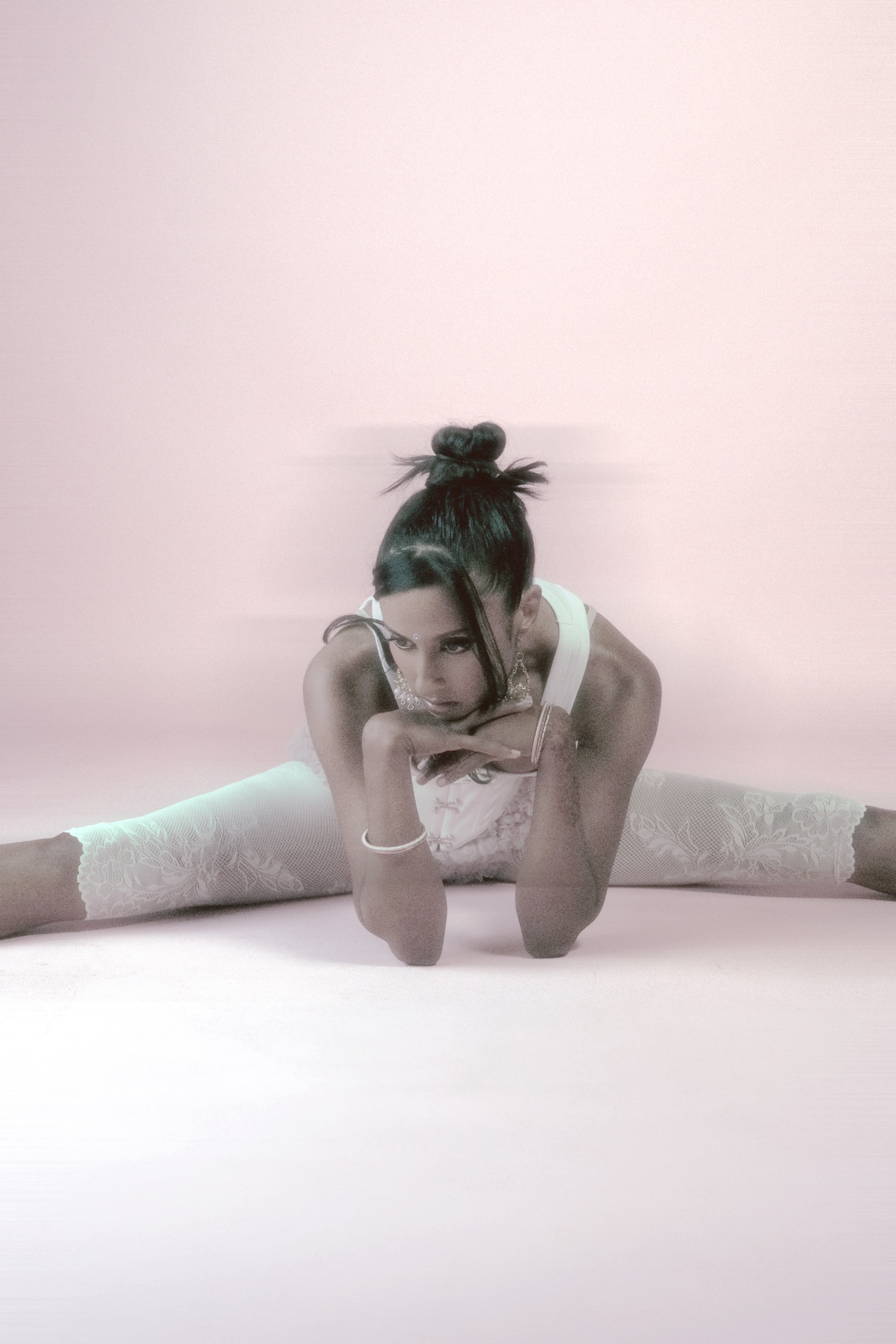
Social media plays a big part in your connection with your audience. How do you use these platforms to express yourself, and how important is authenticity to you in this space?
I actually really love social media. I see it as my public songwriting diary. I post a lot of new music as well as song ideas that I’ve never even released. There was about six months when I just wrote songs on the piano and posted them without ever releasing anything. I’m incredibly un-curated on socials. I don’t focus too much on pushing any kind of narrative other than just making sure I’m showing up exactly where I am that day.
As the music landscape continues to evolve with technology, how do you see your sound and artistic direction evolving over the next decade? What are your aspirations for the future?
I’m a fan of disruption in general. I was the first female artist to have residency in the metaverse, I made 20 NFTs before even fully understanding what one was, and I think I was one of the first artists to ever make an AI-generated music video a few years back. I do think it’s funny how AI came for creatives first. I heard someone say that we all thought AI would do our laundry while we were making songs, but somehow the reverse happened! I think for the first time, we have zero idea what the future will look like, but my aspirations are to keep making something out of nothing and hopefully try to make sense of myself and the world and make people feel good while I do it.
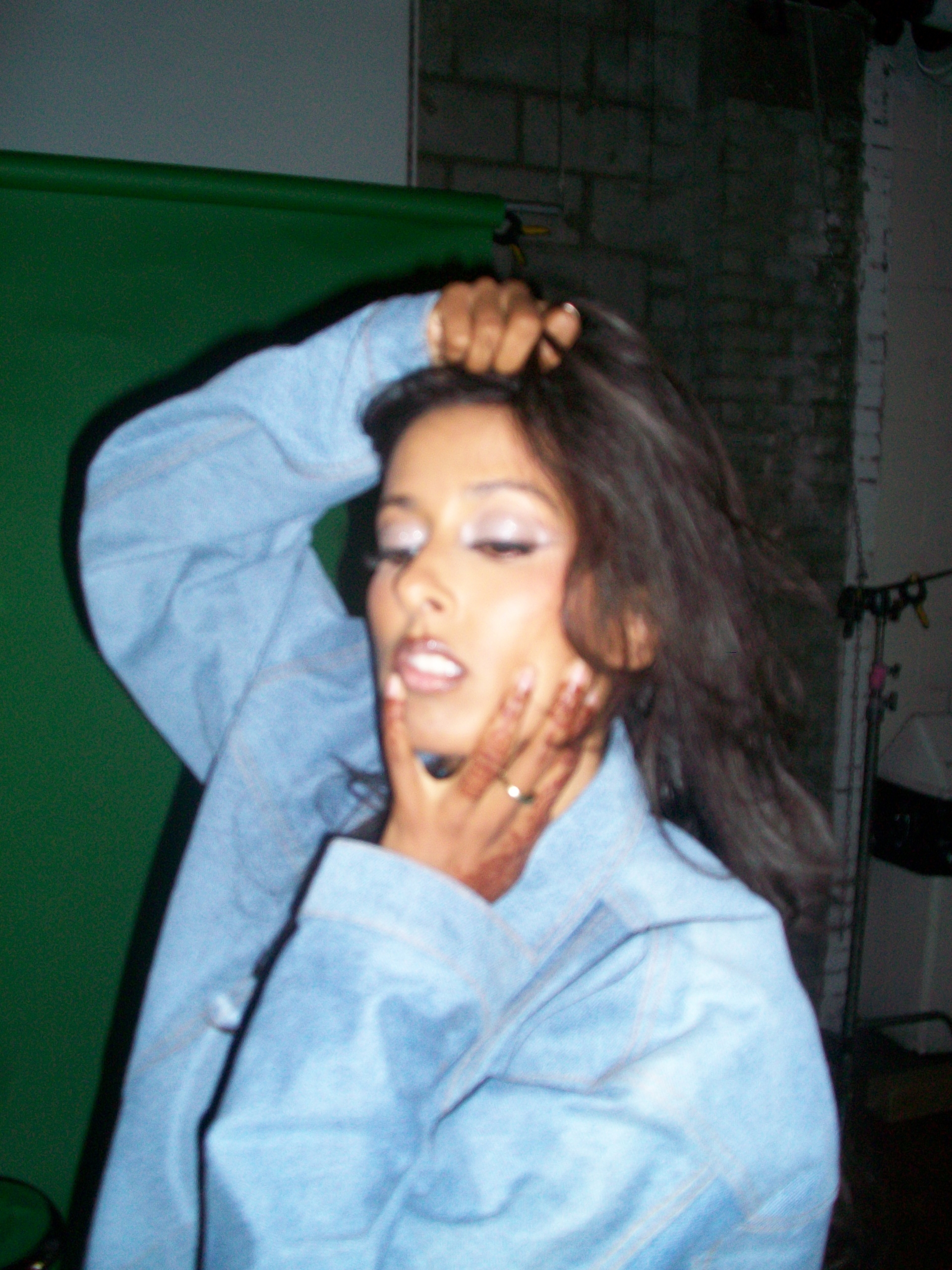
Many of your fans see you as a trailblazer in blending pop with different genres and sounds. What’s next for you musically? Are there any genres or artists you’re keen to collaborate with?
I’m working on a multi genre album including some country singer-songwriter hybrid records that I’m really feeling right now. Guyanese people actually have a unique affinity for folk music due to the storytelling, rural connections, migration patterns, and cultural mixing. I’m also going to continue exploring my West Indian and South Asian culture musically and collaboratively. And of course I love a good pop banger so there will always be those sprinkled in the mix.
CREDITS
Talent: Anjulie – @anjuliemusic
HMUA: Ms. Myles – @ms.mylesmua
Stylist: Megan Seccaspina – @meganseccaspina
Producer, Creative Director, Photographer: Cody Rooney – @croon3y
Assistant Creative Director: Matthew Oster – @kingseptum
Look 1 (Dress): Designer – Miomi
Look 3 (Denim Jacket): Designer – Stranger in a Room
BTS

Cody is the Editor in Chief and senior contributor at liminul.
He is a photography aficionado, fashion enthusiast, avid Lana Del Rey fan, and lover of all things aesthetically pleasing.

